Hello again Benchwarmers,
Ever wondered who really pulls the strings in the UK? Understanding the structure of the central government – how it's formed, who's in charge, and how they're held accountable – is essential for anyone wanting to grasp how decisions are made that shape our lives. It's a dynamic system built on tradition and law, and we're here to break it down for you.
These are the fifth and final extended shownotes from our series on the UK Constitution. We hope you have found them useful in understanding this living, breathing, unwritten, uncodified framework that affects us all.
Sharpen your political punditry skills by never missing extended shownotes from The Bench Report. You'll be a guest on ‘Newsnight’ in no time.
Inside the Engine Room: A Look at UK Central Government
The central government in the UK isn't just a single entity; it's an "Executive drawn from and accountable to Parliament". Its authority stems from both the Crown and the voters. By constitutional convention, the Sovereign's Government wields executive power, underpinned by a democratic mandate to govern. Typically, government members are also members of either the House of Commons or the House of Lords, ensuring the government is directly accountable to Parliament. The government stays in power as long as it can command the confidence of the House of Commons, a confidence tested through elections at least every five years.
The stability of the government hinges on its ability to maintain this confidence. Votes on motions of confidence or no confidence, as well as crucial debates like the one on the King's Speech, serve as key tests. In situations where there's a minority or coalition government, the Prime Minister might clarify what issues would be considered matters of confidence. Importantly, the government traditionally grants the Leader of the Opposition's request for a debate on a motion that could challenge the House's confidence. Losing a confidence vote usually triggers a general election. As a Parliament nears its end, the Prime Minister authorises pre-election discussions between the Civil Service and opposition parties. During this pre-election period, the government generally avoids launching major long-term initiatives but continues essential work. The governing party can also consult with government departments to verify the accuracy and policy alignment of their public statements. Similar, though sometimes more limited, restrictions on government activities apply during elections for devolved legislatures and local government.
While the Prime Minister has few formal legal duties, they take the lead on significant national issues. They hold certain prerogatives, such as recommending who becomes a minister and deciding the make-up of the Cabinet and its committees. The Ministerial Code designates the Prime Minister as responsible for the "overall organisation of the Executive". The "Office of the Prime Minister" functions as part of the Cabinet Office. A vital mechanism for holding the Prime Minister accountable is Prime Minister's Questions (PMQs) in the House of Commons. The Commons Liaison Committee also regularly scrutinises the Prime Minister. Traditionally, the Prime Minister gives an annual speech at the Lord Mayor's Banquet and may address the nation directly on important occasions. The Prime Minister also holds the position of Minister for the Civil Service, with overall responsibility for its management. Furthermore, the Prime Minister is the minister in charge of National Security and the intelligence services (SIS, Security Service, GCHQ). They receive annual reports from the heads of these agencies and nominate members to the statutory Commons Intelligence and Security Committee (ISC) . The Prime Minister is also responsible for the "letters of last resort" for commanders of the UK's nuclear deterrent submarines and, as First Lord of the Treasury, is among the senior ministers who can enact emergency regulations under the Civil Contingencies Act 2004
Don’t forget to head to the podcast website to listen to this episode on the platform of your choice. Follow to receive new episodes as soon as they are released.
Ministers of the Crown are typically members of the House of Commons or the House of Lords. Upon taking office, they should resign from any other public appointments . They receive government-funded resources for their official duties, which should not usually be used for party or constituency work . A "Secretary of State" is one of "His Majesty’s principal Secretaries of State" . Most Secretaries of State are established as "corporations sole", giving them a distinct legal identity .
The Cabinet, established by convention, is the primary decision-making body of the government . It provides a forum for Ministers to collectively discuss and decide on policy matters . The Haldane report famously described it as the "mainspring of all the mechanisms of Government" . The Cabinet Secretariat records Cabinet proceedings, and the minutes serve as the official record . The principle of collective responsibility underpins the system, meaning Ministers must publicly support decisions even if they privately disagreed . Information related to policy development, Ministerial communications, legal advice from the Law Officers, and the workings of Ministerial private offices is often protected from public disclosure under the Freedom of Information Act 2000 . The Prime Minister can convene a "political Cabinet" for party political discussions, without officials or formal minutes . The Cabinet Office Briefing Room (COBR) is the central mechanism for coordinating the government's response to major emergencies .
The Privy Council comprises "the Lords and others of [His] Majesty’s Most Honourable Privy Council" . It advises the Sovereign and exercises powers granted by law . Orders in Council are made through the Privy Council . The Lord President of the Council usually chairs its meetings and is often a Cabinet member who leads either the House of Commons or the House of Lords . The Privy Council Office (PCO) acts as its secretariat .
The Civil Service serves the government of the day, supporting policy creation and implementation . According to the Carltona principle, the Civil Service doesn't have a separate legal or constitutional identity from the Government or its ministers . Civil servants owe a duty of loyal service to the Crown, which constitutionally acts on the advice of Ministers accountable to Parliament . The Civil Service Commission (CSC) has a legal basis and oversees appointments based on merit . The Minister for the Civil Service has the legal authority to manage the Civil Service and must publish a Code of Conduct outlining core values like integrity, honesty, objectivity, and impartiality . The permanent secretary is the most senior civil servant in a government department .
His Majesty’s Opposition plays a vital role in scrutinising the government's actions . The Speaker (or Lord Speaker) recognises the Leader of the Opposition . Opposition parties receive public funding ("Short and Cranborne Money") to support their parliamentary work and policy development . By tradition, new leaders of the main opposition parties in the Commons become members of the Privy Council and are granted an audience with the Monarch .
Glossary of Key Terms
Central government: The executive branch of the UK government, accountable to Parliament.
Constitutional convention: Unwritten rules and practices that govern the UK's political system.
Motion of confidence/no confidence: A vote in the House of Commons to determine whether the government retains the support of the majority of MPs.
Prerogatives: Powers traditionally held by the Crown that are now exercised by government ministers.
Collective responsibility: The principle that all members of the Cabinet must publicly support government decisions .
Privy Council: A body of advisors to the Sovereign, primarily exercising statutory powers .
Carltona principle: The legal principle that actions of civil servants are legally considered to be the actions of the minister in charge .
Parliamentary Sources
The United Kingdom constitution
Research Briefing
Published 23 April, 2025
Questions and Answers
Where does the UK central government get its power? Its authority comes from both the Crown and the voters.
How is the government's stability ensured? It relies on its ability to command the confidence of the House of Commons, tested through votes and significant debates.
What are some of the key responsibilities of the Prime Minister? They lead on significant matters, recommend ministerial appointments, organise the Executive, and are responsible for national security and the Civil Service.
What is the main function of the Cabinet? It serves as the ultimate decision-making body of government, providing a framework for collective consideration of policy issues .
To whom do civil servants owe their loyalty? They owe a duty of loyal service to the Crown, which acts on the advice of Ministers accountable to Parliament .
Politics is everyone’s business. Know someone who will benefit from knowing more about this issue? Please share The Bench Report with them.
What you can do.
Keep an eye on debates and votes in the House of Commons, particularly those described as "confidence votes" or related to the King's Speech, to understand how the government's stability is tested in real time.
Look out for reports or news coverage related to Prime Minister's Questions (PMQs). This weekly event offers a direct example of how the Prime Minister is held accountable by Parliament.
If you're interested in a specific area of government policy, research which Secretary of State or government department is responsible. Understanding the structure of government helps you identify the key players.
Subscribe to the Bench Report!!!
Join the campaign!
Find us on socials: X / Bluesky / Facebook / Instagram
Shape our next episode! Get in touch with an issue important to you - I’ll grab another coffee and start the research.
Email: thebenchreportuk@gmail.com
Subscribe for free to stay connected, never miss extended shownotes and astound your friends at dinner parties.


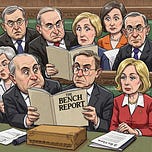

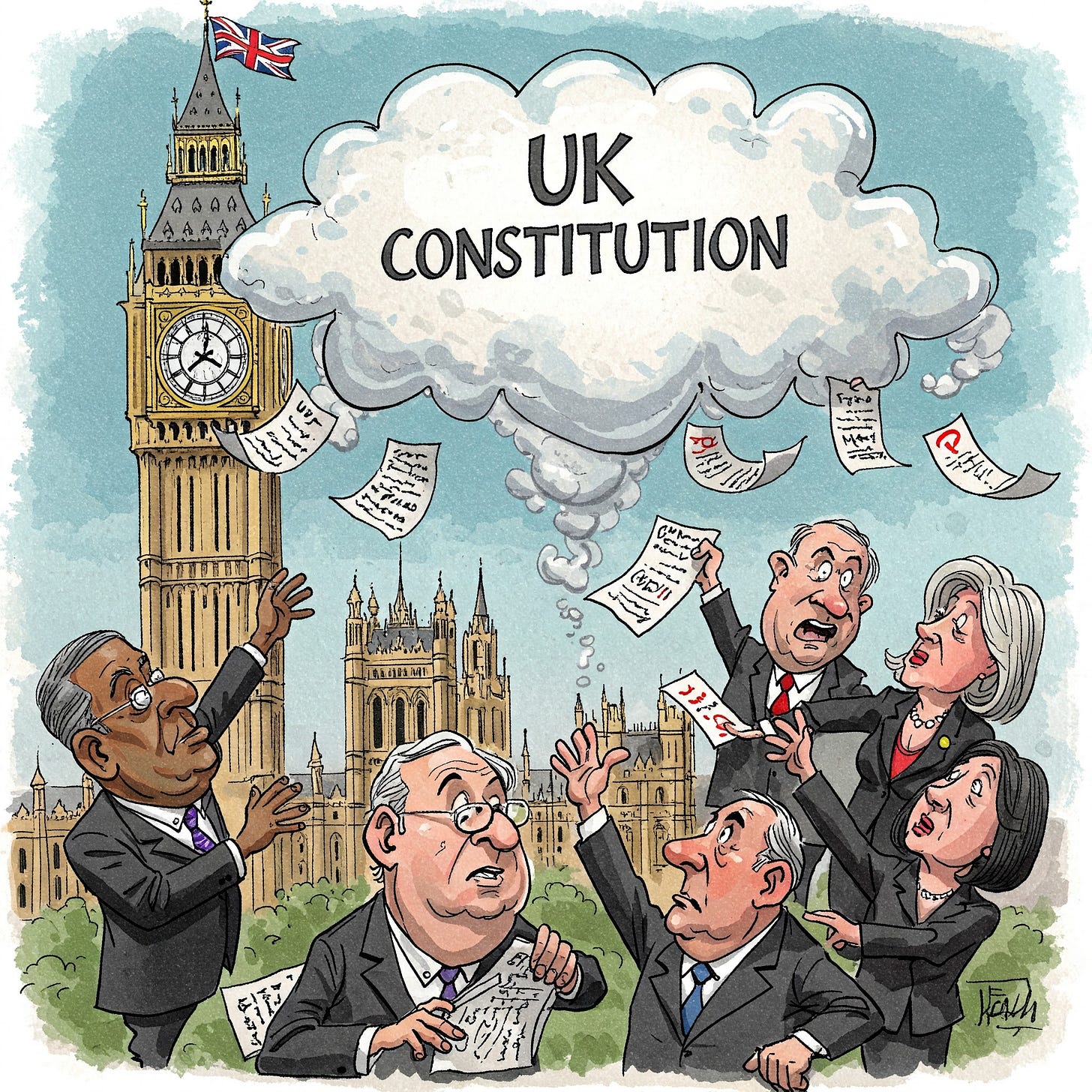
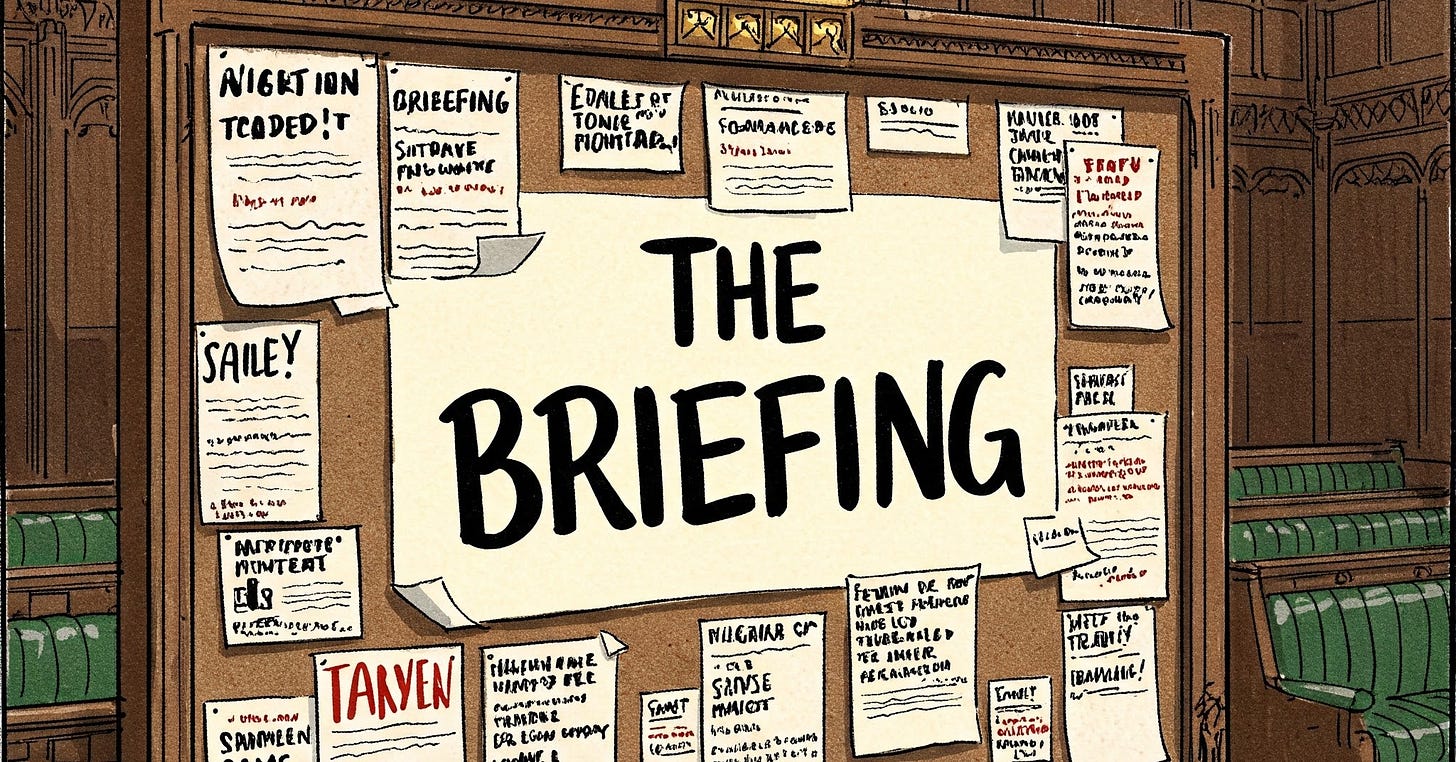
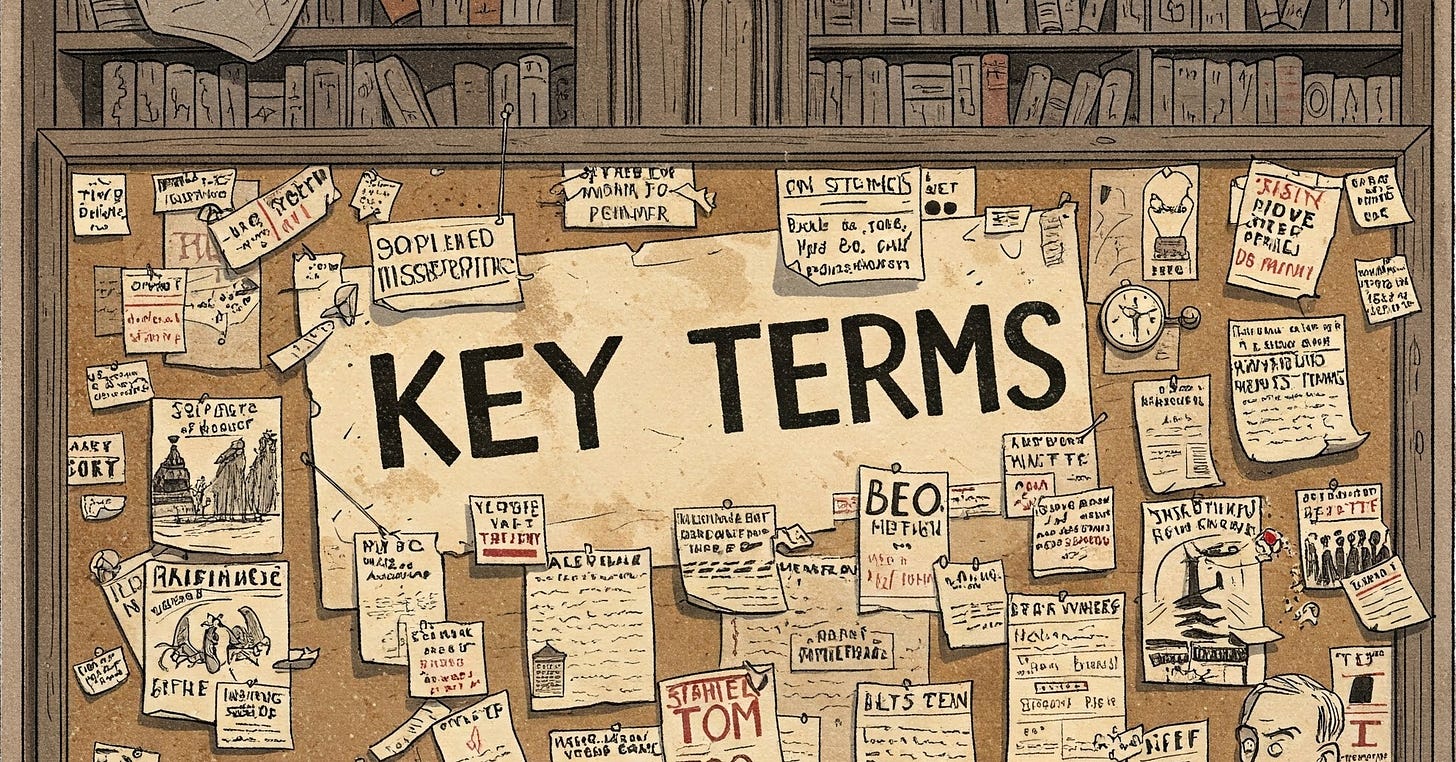
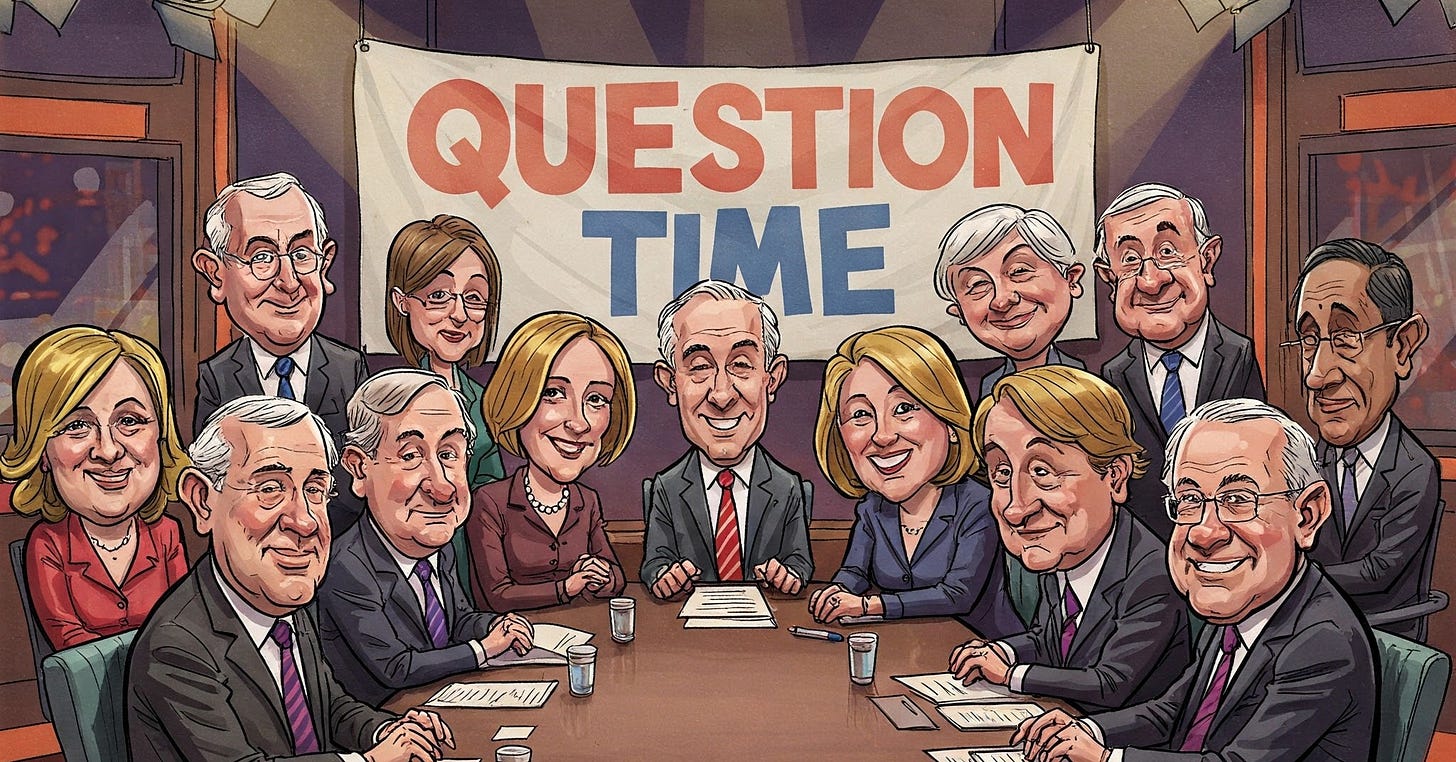
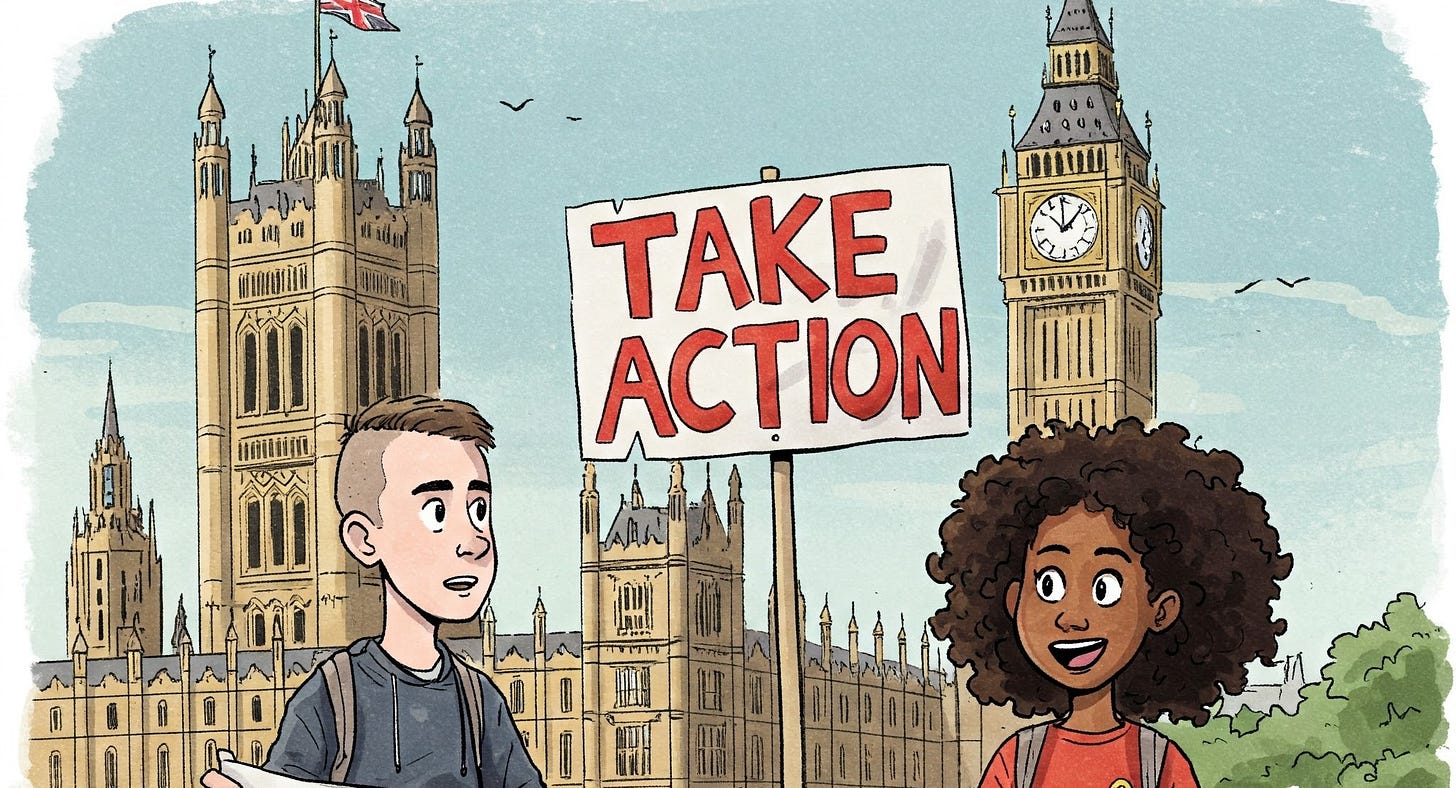






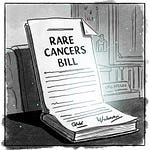

Share this post